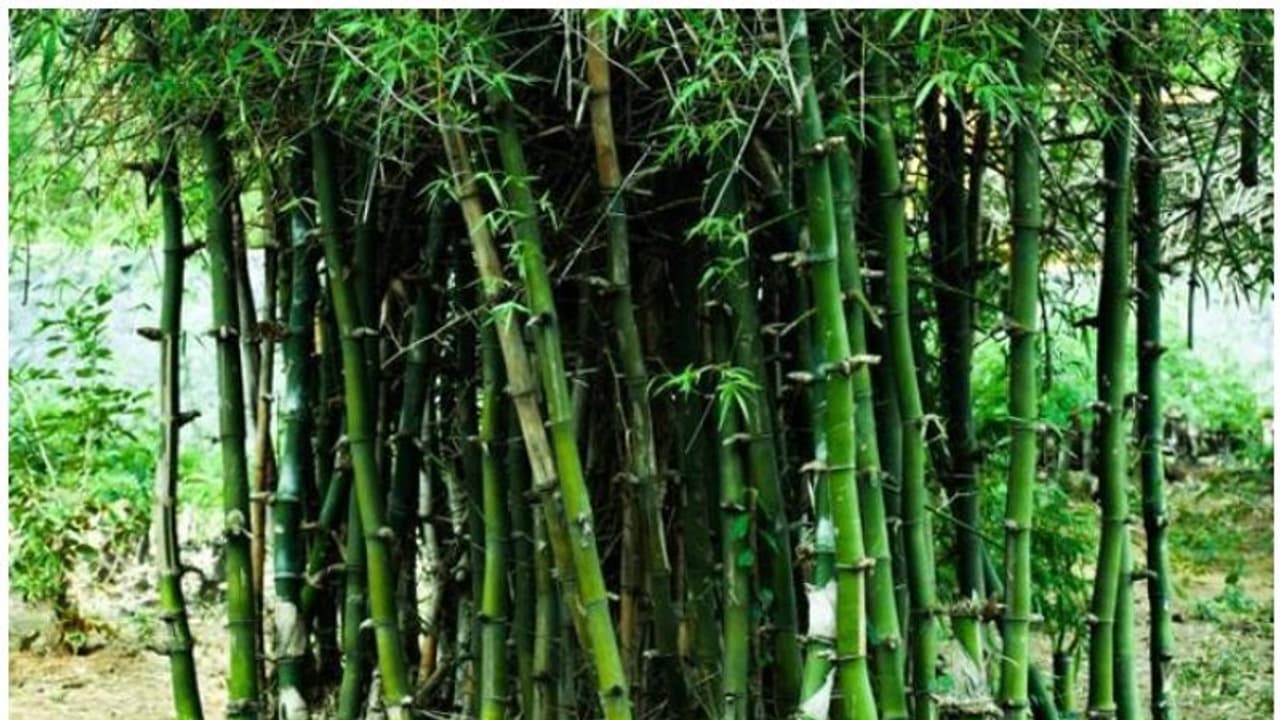India being the second-largest producer of bamboo in the world after China, continuously strives to create and increase awareness of bamboo globally.
Bamboo which is known as green gold is a strong, profitable, renewable as well as environment-friendly crop that can be easily grown for various purposes. Bamboo is also considered to be the most durable material on earth.
India being the second-largest producer of bamboo in the world after China, continuously strives to create and increase awareness of bamboo globally. Owing to the durability and ability to grow in any environment, the plant is considered as a symbol of progress and prosperity. Scientists across the country believe that the plant compared to other vegetation has 35 percent more oxygen. The concept of sustainable development and the vision of 'Green India' is also being realized through bamboos. On September 18, people of Jharkhand, a tribal-dominated state, which is the largest producer of bamboo, celebrated World Bamboo Day with great fervour and zeal. The Thai Royal Forest Department declared this date as World Bamboo Day in 2009 at the 8th World Bamboo Congress.
Making the day special, the government of the state planned to bring about positive changes in the livelihood of the tribal through various schemes. On one hand, the emphasis was on increasing the production of bamboo, while on the other hand, skill trainings were also being imparted to the artisans.

Bamboo Crafts has become the main industry of Jharkhand, and about 500 types of products are made out of bamboo which are then transported to other states. Bamboo production generates an income of Rs. 50 lacs for the government every year.
Bamboo is abundant in each district of Jharkhand. Its abundance promises great potential for the people of the state in terms of employment. Also, bamboo can be utilised in various ways ranging from agriculture to alternative sources of energy. Demand for bamboo products such as sofa sets, tables, bags, and artistic materials for daily use has increased in recent times due to which its trade has also increased in the world.
Since the demands for bamboo products are rising, the artisans are being trained on modern methods of production to ensure maximum employment. Bamboo artisans Santosh Mahli, Kashinath Mahli, Joseph Mahli, Babita Kumari, Marshila Hembram earn Rs 10 thousand per month from this employment. In Jharkhand, the government is working towards increasing the income of the poor.

The tribals of Jharkhand will no longer migrate to West Bengal for employment, bamboo will provide them employment at home. The Bamboo Cottage Industry will bring about positive changes in the life of the tribals in the state. Jharkhand is a forest state where natural wealth is aplenty. Bamboo is becoming a huge employment opportunity for the people of Jharkhand.
The views expressed in the above article are that of Shailendra Sinha of Charkha Development Communication Network.
